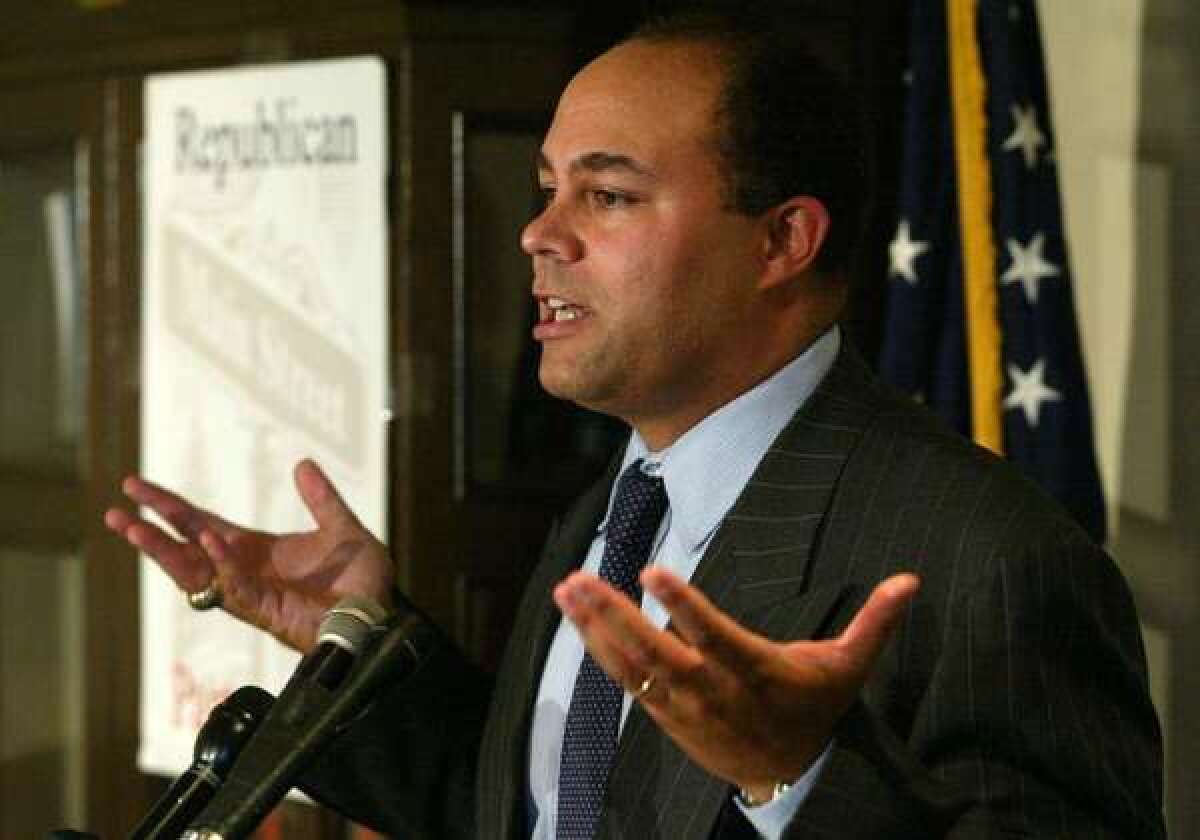Big surprise: Ex-FCC chief defends the cable industry

Former FCC Chairman Michael K. Powell, who is now the chief lobbyist for the cable industry, takes issue with my Aug. 25 column about how cable monopolies such as Time Warner and Comcast have made Internet access slower and more expensive than in many countries around the world.
Powell, in a letter to The Times, grouses that I overlooked “the fact that America is among the world’s leaders in broadband choice, availability and quality.”
He says that the U.S. is “one of two nations featuring three universally available high-speed networks” and that “85% of U.S. households can access wired networks capable of 100-megabit-per-second service.”
In the space of four short paragraphs, Powell thus shows how brilliantly he earns his pay as chief executive of the National Cable and Telecommunications Assn. -- and how poorly he earned it as chairman of the Federal Communications Commission, a post he held from 2001 through March 2005.
Let’s unpack his assertions one by one. It’s a little unclear what “three universally available high-speed networks” he’s referring to, but if he means cable, DSL and mobile or satellite, he’s blowing smoke. Only cable consistently offers true high-speed capability -- DSL is spotty and barely serviceable when it’s available, and neither satellite nor mobile networks can offer both high speed and reasonable pricing.
Even if it were true that 85% of the country “can access” 100-megabit service, the question is: at what price? As my column noted, in Seoul you can get it for $31.90 a month. In New York you’ll pay $35 for one-fourth the speed, and in Los Angeles you pay $30 for one-10th the speed.
Can you get 100-megabit service where you live? In Southern California, Time Warner Cable’s fastest speed is 50 megabits, and for that you’ll pay $75. We’re the second-largest metropolis in the nation -- if we can’t get 100-megabit service, than what fantasyland is Powell talking about?
The fact is that America is falling behind the rest of the world in broadband “choice, availability, and quality.” The digital divide between our rich and poor is getting wider. The reason is lax regulation by the agency Powell headed for more than four years before finding his calling as a flack for the industry he was supposed to be regulating.
He gives the game away in his letter by pointing out that we’ve achieved our mediocre record “without the massive taxpayer subsidies that financed broadband networks in Europe and Asia.” Right. His clients don’t want the government to compete with them, but they don’t want to spend the money to make the U.S. first in the world with the fastest and most accessible Internet service.
He and his bosses may be satisfied with this state of affairs, but we shouldn’t be.
ALSO:
On a quest for decent cable service
Cable monopolies hurt consumers and the nation
Your Time Warner refund for a weeklong blackout: $4







